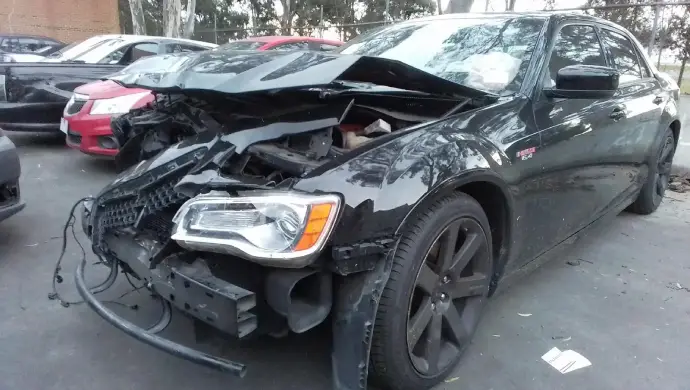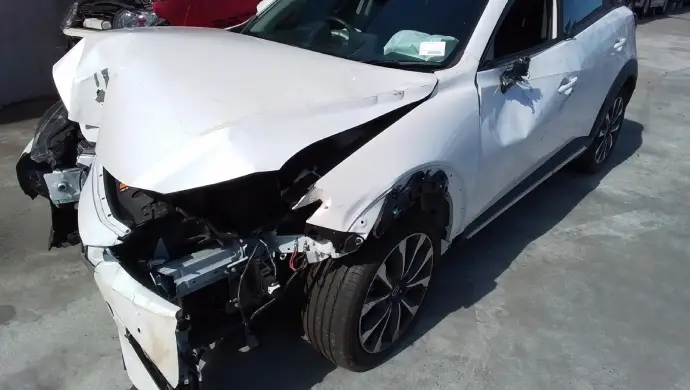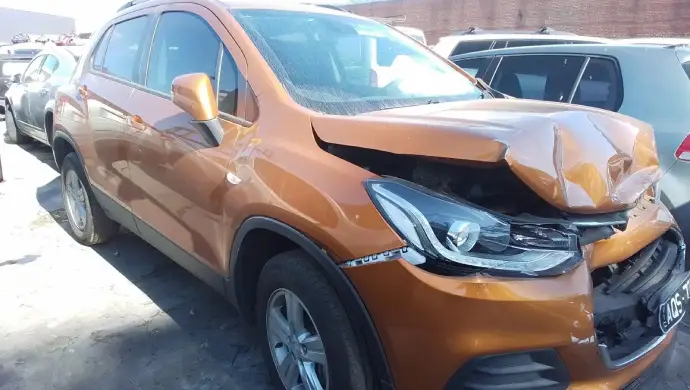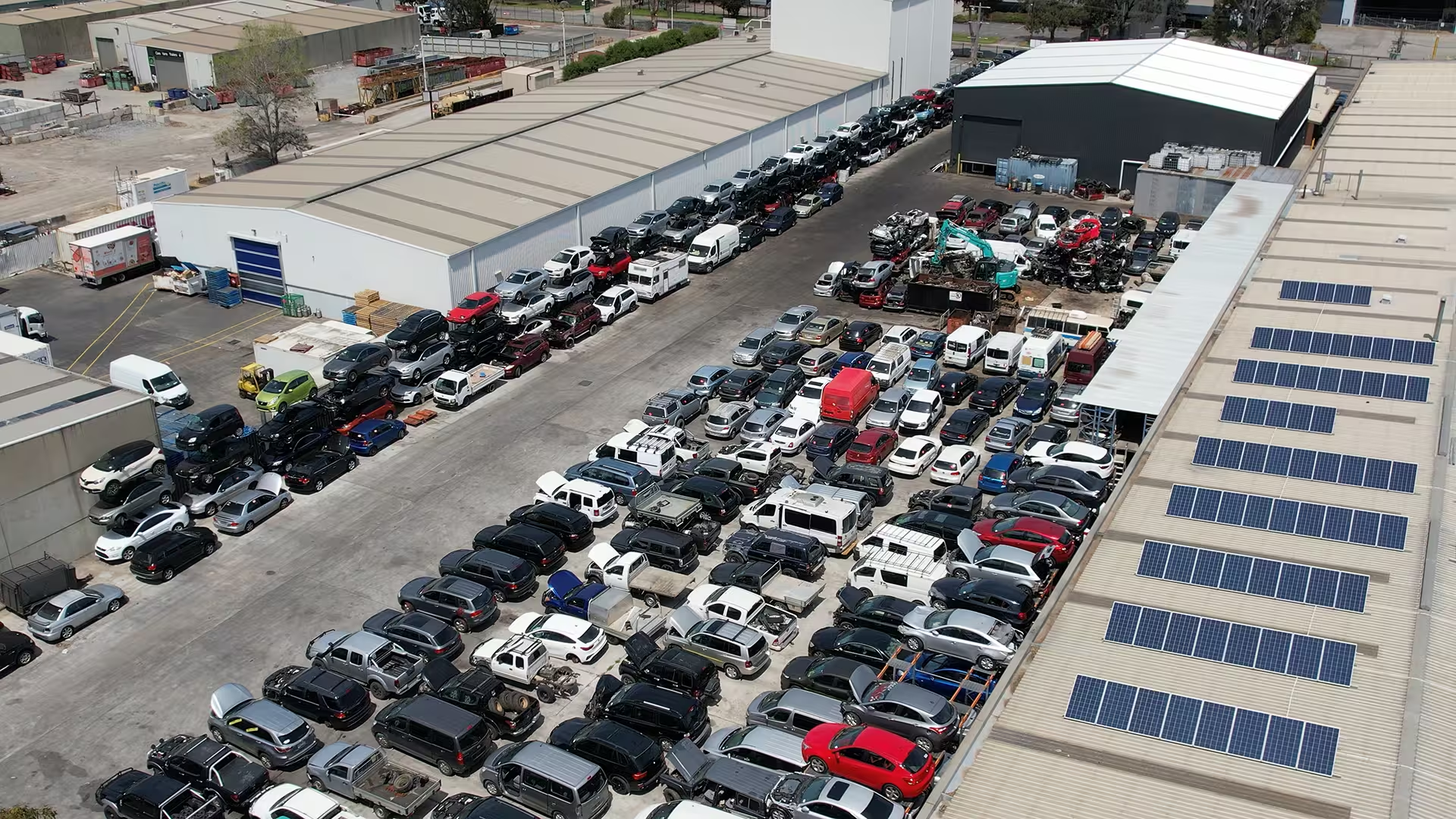
Hearing that your car has been written off can feel overwhelming. Whether it’s after a major accident, storm damage, or mechanical failure, the idea of losing a vehicle so suddenly often raises big questions. What does a written-off vehicle actually mean? How do insurance companies decide? And can you ever get your car back on the road?
In Australia, a car is usually declared a write-off when the cost of repairs is higher than its market value, or when the damage makes it unsafe to drive again. Knowing the rules around car write-offs helps you prepare for insurance claims and payouts and clarifies what happens next, whether that’s moving on to a replacement vehicle, salvaging parts, or exploring disposal options.
What does it mean when a car is written off?
A car write-off doesn’t just mean the vehicle is badly damaged; it’s an official term used by insurance companies in Australia. A car is declared a written-off vehicle when the cost of repairing it is higher than its market value, or when the damage makes it permanently unsafe to drive on the road.
There are two main categories of car write-offs:
- Statutory write-off: This applies when the vehicle has severe damage, such as structural issues, fire damage, or flood damage. Once classified as a statutory write-off, the car can never legally be driven again. Its only value lies in salvage parts or recycling.
- Repairable write-off: This applies when the vehicle can be fixed, but at a cost that outweighs its market value. In these cases, the car may still be repaired and re-registered after passing inspections, though it remains listed on the Written-Off Vehicle Register (WOVR).
Understanding the difference between these categories helps car owners know whether their written-off car can be repaired, sold for parts, or must be recycled.
Types of written-off vehicles in Australia
%20X5%20in%20the%20city%20street.png)
As we’ve said before, not all written-off vehicles are treated the same way. In Australia, cars are generally classified into two categories depending on the type and severity of the damage. We’ve given you the general idea of what statutory and repairable write-offs are, but let’s delve deeper into the topic.
Statutory write-off
A statutory write-off is declared when a car has sustained severe or irreversible damage. This usually happens after serious car accidents, floods, or fires that make the vehicle unsafe for future road use.
Once a car is categorised as a statutory write-off, it cannot legally be re-registered or driven again. Instead, it is dismantled for salvage parts or sent for recycling. These vehicles may still hold value in their metal and usable components, but they are permanently removed from Australian roads.
Repairable write-off
A repairable write-off occurs when the cost of fixing the damage is higher than the car’s market value, but the car itself is not beyond saving. In this case, the vehicle can be repaired and re-registered, but only after passing strict safety inspections and being recorded on the Written-Off Vehicle Register (WOVR).
This ensures that any car returning to the road meets roadworthy and safety standards. While repairable write-offs can be restored, many owners choose to sell them for parts or scrap instead, as the cost and effort of repairs may not be worthwhile.
How much damage is required to write off a car?
In Australia, a car is often declared a write-off after a car accident when the cost of repairs is higher than the vehicle’s market value, or when the damage makes it unsafe to drive. Insurance companies assess the extent of the damage by comparing repair costs against the car’s pre-accident value to decide whether it’s worth fixing.
Situations that commonly lead to a car being written off include:
- Major car accidents: Collisions that cause severe structural damage, such as a bent chassis, crumpled frame, or compromised safety systems.
- Flood or fire damage: Where essential components like the engine, wiring, and electronics cannot be restored safely.
- Extensive crash repairs: When multiple systems (suspension, engine, airbags) are damaged, making repairs uneconomical.
- Hail damage: Cases where widespread panel and glass replacements cost more than the vehicle’s market value.
When the cost of repair goes beyond a certain percentage of the car’s value, insurers will declare it a written-off vehicle. At this point, you’ll usually receive either a payout based on the market value or a replacement vehicle, depending on your policy.
How to check if a car has been written off
Before buying or selling a second-hand vehicle in Australia, it’s important to check whether it has been recorded as a written-off vehicle. This helps protect buyers from purchasing unsafe cars and ensures sellers are transparent about a car’s history.
The most reliable way to check is through the Written-Off Vehicle Register (WOVR), which records details of all statutory and repairable write-offs across Australia. Government authorities maintain the WOVR and allows buyers to confirm whether a vehicle has ever been declared a write-off.
To check if a car has been written off, you can do the following:
- Use the Personal Property Securities Register (PPSR), an Australian government service that provides details on a vehicle’s history, including whether it is listed on the WOVR.
- Provide the vehicle’s identification details, such as the VIN (Vehicle Identification Number) or chassis number, when requesting a search.
- Review the report, which will indicate whether the vehicle is a statutory write-off or repairable write-off, and whether it can legally be re-registered.
What happens to written-off cars?
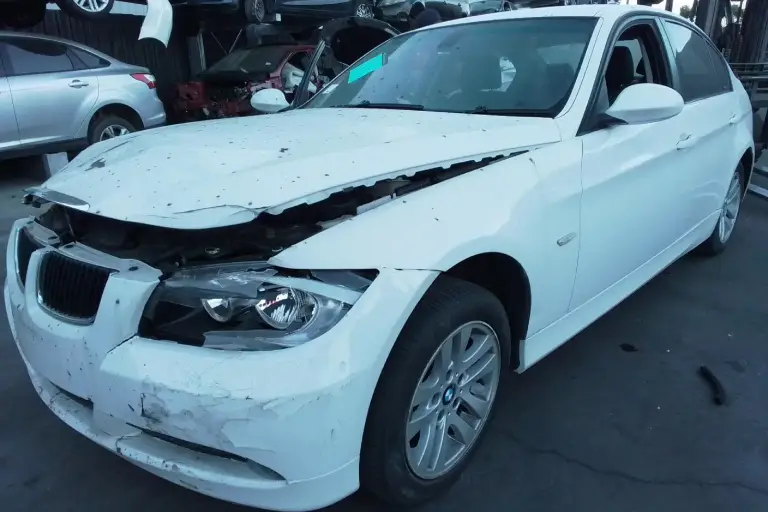
Once a car is officially declared a write-off, it doesn’t just disappear. There are several possible outcomes depending on the type of write-off and the condition of the vehicle.
Many statutory write-offs are dismantled for salvage parts or recycled for scrap metal. Valuable materials such as steel, aluminium, and copper are removed and reused, while usable parts can be resold to extend the life of other vehicles. This process ensures that written-off vehicles still provide value, even if they can’t legally return to the road.
For repairable write-offs, some owners choose to repair the car and go through the re-registration process. However, because the costs can be high and the resale value reduced, many people prefer to sell their written-off vehicle to professional salvage services.
Wreckerland, on the other hand, provides a simple alternative by offering cash for written-off cars and handling the removal process. This option is popular with drivers who want a hassle-free way to get rid of a damaged or unroadworthy vehicle while still recovering some value.
Common mistakes to avoid with car write-offs
Dealing with a written-off vehicle can be confusing, and many car owners make avoidable mistakes that cost them time and money. Knowing what to watch out for helps you handle the process more confidently.
- Not checking the WOVR before buying a used car: Many people forget to check the Written-Off Vehicle Register (WOVR) when purchasing a second-hand vehicle. Without this step, you risk buying a car that has previously been declared a write-off, which can affect safety, registration, and resale value.
- Misunderstanding how insurance payouts work: Some car owners assume they will always receive enough money from their insurer to cover the cost of a new vehicle. In reality, payouts are usually based on the market value or agreed value of the car at the time of the accident, not what you originally paid for it.
- Forgetting to claim registration refunds: When a car is declared a write-off, you may be entitled to a registration refund for the unused portion of your rego and CTP insurance. Many owners miss out on this because they don’t apply through their state road authority.
- Underestimating salvage value: Owners sometimes think a written-off car is worthless, but that’s not true. Even if it cannot be repaired, written-off vehicles still have value in scrap metal and salvage parts. Getting cash for cars in Wreckerland ensures you recover some of that value quickly and easily.
Frequently asked questions about car write-offs
Does my insurance policy affect whether my car is written off?
Yes. The type of insurance policy you hold can influence how a write-off is handled. For example, comprehensive insurance usually covers the payout for a written-off vehicle, while third-party policies may only cover damage caused to others. Your insurer will also refer to the agreed or market value listed in your policy when calculating your payout.
Will my insurance premium go up if my car is written off?
In many cases, yes. After a claim for a written-off vehicle, your insurance premium may increase, as insurers may view you as a higher risk. However, this depends on factors such as whether you were at fault in the accident, your claim history, and your provider’s policy.
Can I keep my car if it’s written off?
Sometimes. If the car is a repairable write-off, you may be able to keep it, repair it, and re-register it once it passes inspections. But if it’s a statutory write-off, you can’t drive it again. It can only be sold for scrap or dismantled for parts.
What if I wasn’t at fault in a car accident?
If you’re not at fault but your car is declared a write-off, you may be entitled to claim compensation through the at-fault party’s insurer. This can include the payout for your vehicle’s market value, costs of a replacement vehicle, or other losses you’ve suffered.
What to do if your car is written off
Having your car declared a write-off can feel daunting, but understanding the process makes it easier to decide what to do next. Whether your vehicle is a statutory write-off destined for scrap or a repairable write-off that could return to the road, there are always options to recover value and move forward.
If you want a simple, stress-free solution, Wreckerland provides an easy way to sell written-off cars across Melbourne. We offer competitive cash for vehicles in any condition, handle the paperwork, and include free towing to make the process hassle-free.
Contact Wreckerland today to sell your written-off vehicle quickly and confidently and turn your damaged car into instant cash.




